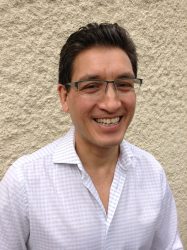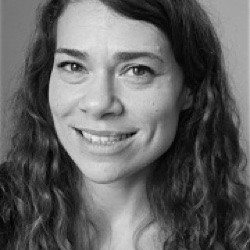A community of deep inquiry
This is a week-long residential component of a community of inquiry that combines virtual and physical spaces to support a deep reflective inquiry into diversity and inclusion in society. The gathering will strengthen our capacity to create social practices that honour diversity, embrace pluralism, and enable us to live creatively with difference, through a deepening our understanding of ‘othering’.
‘Othering’ involves constructing identities and defining belonging and exclusion in terms of ‘us and them’. It is the patterning of identity that finds explicit expression in intolerance, racism, and xenophobia. It is both a psychological dynamic and set of social practices, and sits at the heart of ideological formation. Although its consequences can be harsh, its formation can be complex and subtle.
Through participatory and co-creative methodologies, the community of inquiry will explore:
• The root causes of ‘othering’
• How it shows up and shapes the intrapersonal, interpersonal and structural
• Ways of deepening our understanding and uncovering the process in ourselves, our groups and in society
• Effective methods for challenging and engaging with intolerance and prejudice – as well as ways to transform those tendencies
• Situate intolerance historically – understanding the conditions that give rise to it and how they can be changed
• How this learning can support the development of radical and pluralist democracy.
Intolerance, racism, and xenophobia are all back in the headlines. Of course, they never went away, but a constellation of socio-economic conditions is strengthening their hand along with the rise of the far right. It seems, as Zack Beauchamp,[i] writes, that ‘the battle between racist nationalism and liberal cosmopolitanism will be one of the defining ideological struggles of the 21st century.’
Anger over immigration and a toxic mix of racial and religious intolerance, combining with economic precarity are current sources of the far-right’s appeal. But the core tendencies are is nothing new. The tendency to construct identities and define belonging or exclusion in terms of ‘us and them’, is the patterning of identity that finds expression explicitly in far-right populism. This is the tendency often referred to as ‘othering’. It structures relations and oppression in terms of race, culture, sexuality, class, ethnicity and gender, amongst other diverse dimensions of human identity.
Understanding ‘othering’ as a psychological tendency, as a social practice, and its role in ideological formation, can support us to honour diversity, embrace multi-culturalism and pluralism, and live creatively with difference. It is important to be able to reflect on the ways it plays out in the construction of our own identities, in our own groups and organisations, as well as in society around us.
“Social groups and relations exist only by means of their symbolic differentiation from other[s], through exclusion from or opposition to certain conditions. This antagonistic differentiation supplies a fictive coherence and objectivity to social identity through the demarcation of a threatening ‘other’ often regarded as irrational, hostile or beyond reasonable comprehension (selfish capitalists, envious foreigners, cold-hearted bureaucracies, and so on), thus It promis[es] an illusion of fullness of identity once the antagonist has been overcome.”[ii] James Martin
In recent years there has been some excellent work done in the areas of ‘Power and Privilege’, ‘Diversity and Anti-Oppression’, or ‘decolonialism’. Related tools and methods have been used to uncover and transform prejudice and oppressive practices in many social change groups, organisations and communities. This inquiry seeks to draw on these fields and then drop into a yet deeper reflection on the core tendencies that undermine our capacity to truly honour diversity.
“It is part of our task as revolutionary people, people who want deep-rooted, radical change, to be as whole as it is possible for us to be. This can only be done if we face the reality of what oppression really means in our lives, not as abstract systems subject to analysis, but as an avalanche of traumas leaving a wake of devastation in the lives of real people who nevertheless remain human, unquenchable, complex and full of possibility.” —Aurora Morales
More details about this community of inquiry will be available soon.
[i] White Riot, Zack Beauchamp, Novemebr 4th 2016, Vox
[ii] James Martin (Goldsmiths University, London) Chantal Moufe: Hegemony, Radical Democracy, and the Political, p3, 2013.
In the solidarity economy:
(See details of our approach to radical economics here)
Contact us
to apply

Location:
Byron has a background in health and social care, community adult education, counselling and leadership development; and has spent the past 25 years supporting individuals, teams, communities and organisations build inclusive practices, systems and cultures. During that time he has supported the equality, diversity and inclusion work in many small, medium and large organisations; engaging with front-in workers and senior leaders and teams. His passion is supporting individuals, teams and organisations weave together different sources of knowledge, wisdom and practice to support collaborative learning, address sensitive issues and building inclusive practices and cultures. His current work involves supporting people involved in equality, diversity and inclusion develop a compassionate approach in their work, including self-care, engaging with difficulties, and compassionate action.

Location:
Paula was INTRAC‘s Training Manager for more than 5 years. She was responsible for managing INTRAC’s broad range of training programmes including tailor-made, open, and blended courses. She has continued her work with INTRAC as an associate and trains on training of trainers, facilitation skills, M&E of training and managing roll outs effectively. She is a co-founding member of the Training Providers Forum which is an informal network of non-profit training providers working across the development and humanitarian sector. The forum has been running for five years, sharing best practices in training provision, forming collaborations, and offering yearly workshops to sector on key themes such as M&E of training and building the capacity of local training providers. Paula has also been exploring how inner practices can help to support social change work through building personal awareness, resilience and insight. She is training to be a mindfulness teacher and is a co-founding member of the Mindfulness and Social Change Network.

Location:
An Maeyens (she/her) is a facilitator and trainer with over two decades of experience in grassroots movements. She specialises in creative, inclusive agenda design and brings deep expertise on group culture, power dynamics, and transformative learning. Starting of in the anti-globalisation movement she has trained thousands in civil disobedience, supported international coalitions, and developed multilingual training programmes and toolkits. Her work spans movements, cultures, and countries, guided by a commitment to care, accessibility, and leaderful organising.

Location:
Ari’s activism began in 2002, at age 16, as a Bosnian refugee in Canada, where they founded and coordinated a group for LGBTIQ high school students and allies. They were a co-founder and leader at kolekTIRV in Croatia and Trans Network Balkan, involved in community organizing, advocacy, program management, team coordination, capacity building, education, media work, campaigns, events, fundraising, etc. In 2024, they joined the Supervisory Board of the Croatian Trade Union Collective of United Precarious Workers and Activists (SKUPA).
Beyond the Balkan region, Ari served as a Board member at Transgender Europe (TGEU), where they held roles as Secretary, Treasurer, and later Co-chair. They have also been a trainer with the Center for Artistic Activism and served on the Advisory Committee and since 2022 as a Community Care Facilitator at FRIDA — The Young Feminist Fund. Since 2024 they are the Operations Manager at Global Philanthropy Project.

Location:
Sergio (all pronouns) was born in Romania and migrated to Germany in the early 2010s. In the past, he was a social worker with homeless people and a social consultant for Eastern European migrants for various organisations. Trained as a filmmaker, he spent two years making a documentary about the ‘civic reawakening’ in Romania and the waves of protest it brought with it. In connection to this, Sergio is currently co-steering the development of an online open-source participative knowledge production platform on activism in Romania. Over the past nine years, Sergiu has offered his skills to various journalists, grassroots collectives and campaigns, mostly working within the labour rights, climate justice, international solidarity and anti-authoritarian movements in Germany and Romania. Nonetheless, his biggest focus since 2020 has been his work as an organiser with the anarcho-syndicalist Free Workers Union, where he focuses mostly on organising Romanian migrant workers on construction sites, in factories and in the agricultural field.

Location:
Linzy Na Nakorn is a movement director, politicised somatics practitioner, community organiser and facilitator. For the past decade she has been facilitating movement, body work and creating theatre, dance and participatory performance that advocates for and organises with communities in pursuit of housing, disability and racial justice. Her movement practice focuses on trauma-informed approaches to building resilience, capacity and joy via way of the body for personal, interpersonal and community sustainability. Linzy was a Co-Director of The Big Ride for Palestine in partnership with The Gaza Sunbirds, Native Woman Ride and Middle East Children’s Alliance; using cycling as a tool for mobilising active solidarity and in support of campaigning for the rights and self-determination of the Palestinian people. Linzy is part of a UK network of activists and artists advocating for Radical Care – supporting organisations, researchers and institutions to work towards system change in societal approaches to labour, leadership and access.

Location:
Jeroen (he/him pronouns) has been involved in grassroots social movements for more than two decades now, starting back when he was fifteen. Throughout the years the fights for “climate justice” and “migrant justice” have been consistently on top of the list of struggles that make his heart beat faster. A key transformative moment for Jeroen was reading Paulo Freire’s Pedagogy of the Oppressed. Freire’s revolutionary pedagogy gave him a language to support the creation of emancipatory learning environments, rooted in a desire for collective liberation. Jeroen has also been exploring in depth Boal’s Theatre of the Oppressed and Joanna Macy’s The Work That Reconnects among other methodologies to build his trainer’s toolkit. Inspired by the liberatory possibilities of these traditions, he started an organization with a friend, LABO vzw, based in Belgium, where he has worked as a trainer and campaigner between 2013 and 2023.

Location:
Ella brings more than 10 years’ external experience working with not for profit and community based organisations across diverse themes including: advocacy for migrant communities; local community engagement in national policy making; and structural relationships between poverty and disenfranchisement, and education and poverty. Immersed in critical theory in her early 20s she brings a holistic and questioning approach, and is passionate about systemic solutions that centre relationship and interconnection between ecology and society. A long standing member of the collective, Ella has been part of the core team since the inception of the Ulex Project. Her work bridges facilitation, developing project partnerships, governance, strategy, operations, and project and programme evaluation. She has developed and overseen more than 70 partnerships with a range of different actors across European social movements.
Ulex: Latin (argelaga Catalan, gorse English) noun:
1. A thorny-evergreen flowering shrub, with a high capacity for regeneration and resilience. Its seedpods open in contact with fire and it reshoots from charred stumps. A successionary plant that grows well under challenging conditions. It improves soil fertility through nitrogen fixing, preparing the way for renewed biodiversity.
2. A traditional choice for igniting fires. Burns hot and bright.
3. A networked project adding nutrition and fertility to European social movements through training and capacity building. It kindles the realisation of social justice, ecological intelligence, and cognitive vitality.